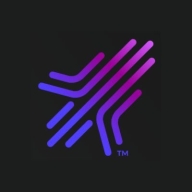

Rocket Zena and Rocket Zeke are competing products in the tech industry. Based on data comparisons, Rocket Zeke seems to have the upper hand due to its superior features, making it a more appealing product despite Rocket Zena's advantages in pricing and support.
Features: Rocket Zena offers advanced customization options, a user-friendly interface, and flexible scalability designed to meet varying business demands. Rocket Zeke is known for its superior integration capabilities, robust security features, and high-performance analytics, which are crucial where seamless system interoperability is a priority.
Ease of Deployment and Customer Service: Rocket Zena provides a quick setup process and efficient customer support, making it easier for businesses to deploy and get assistance promptly. Rocket Zeke, however, involves a comprehensive deployment approach requiring more time, contributing to a durable and long-lasting solution. This is particularly advantageous for enterprises looking to invest in a resilient implementation strategy.
Pricing and ROI: Rocket Zena presents a more competitive initial cost, making it an attractive choice for budget-conscious businesses. Rocket Zeke, requiring a higher upfront investment, offers a higher return on investment over time due to its enhanced features and integration capabilities, attracting businesses focused on long-term benefits.


Rocket Zeke is designed for project management, facilitating team coordination and task tracking. Its key features include seamless tool integration and real-time updates, which enhance productivity and streamline workflows, leading to improved deadline adherence and resource allocation.
Rocket Zeke stands out in the project management market with its capability to integrate a range of tools, enabling real-time updates and effective collaboration. Users benefit from its ability to manage large datasets efficiently, using an intuitive dashboard that simplifies complex tasks. Renowned for its speed and ease of use, Rocket Zeke offers customization options, timely customer support, and regular updates to keep functionality at its peak. However, it faces challenges related to software performance, with occasional lags and crashes, a steep learning curve, and slower customer support response times. Enhancements in these areas could significantly improve the overall user experience.
What are Rocket Zeke's most important features?Rocket Zeke finds application across different industries, helping teams in sectors such as technology, marketing, and finance streamline their project management processes. Its integration capabilities and real-time updates are particularly beneficial for teams needing to stay agile and coordinated.
Rocket Zena automates and schedules tasks across mainframe, Linux, and Windows environments, reducing human errors and managing dependencies.
Rocket Zena serves as a powerful tool for scheduling and automating tasks across multiple platforms. Its capabilities extend to managing batch jobs, ETLs, SFTP transfers, database backups, organizing workflows, running scripts, managing payroll tasks, and customizing schedules to avoid manual interventions. Users benefit from a user-friendly interface and efficient containerized deployment with clear process visualization through diagram and whiteboard features. The platform supports file transfers, automates workflows, saves time, and reduces errors, with straightforward licensing and commendable technical support.
What are the most important features?Rocket Zena sees implementations in industries requiring robust task scheduling and automation such as finance for managing payroll and database backups, healthcare for handling ETL operations and workflow organization, and IT for running scripts and managing batch jobs. Adaptation to industry-specific needs showcases its versatility, although users seek improvements in scheduling mapping, UI navigation, and desire cloud availability.
We monitor all Workload Automation reviews to prevent fraudulent reviews and keep review quality high. We do not post reviews by company employees or direct competitors. We validate each review for authenticity via cross-reference with LinkedIn, and personal follow-up with the reviewer when necessary.